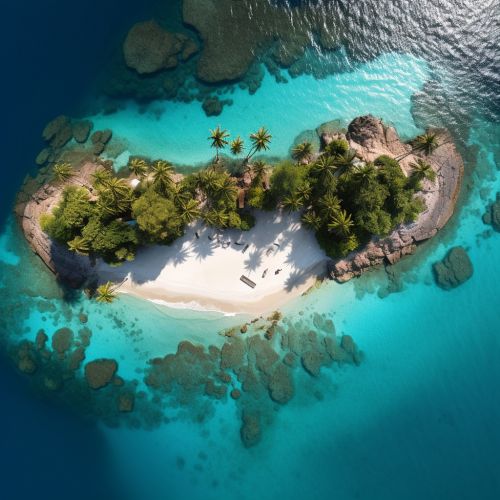Impact of Climate Change on Island Countries
Introduction
Climate change, a significant and lasting change in the statistical distribution of weather patterns over periods ranging from decades to millions of years, has been a major global concern. It has particularly severe implications for island nations, which are often more vulnerable due to their geographical and economic characteristics. This article will delve into the impact of climate change on these island countries, exploring the unique challenges they face and the measures being taken to mitigate these effects.


Geographical Vulnerability
Island countries, by virtue of their geography, are particularly susceptible to the impacts of climate change. Many of these nations are located in regions that are prone to extreme weather events, which are predicted to increase in frequency and intensity as a result of climate change. Rising sea levels, a direct consequence of global warming, pose a significant threat to low-lying island nations. Inundation, coastal erosion, and soil salinization are among the challenges these countries face, threatening their very existence in some cases.
Economic Implications
The economies of many island nations are heavily dependent on sectors that are directly impacted by climate change. Tourism, a major source of income for many of these countries, is particularly vulnerable. Changes in temperature and precipitation patterns, along with increased frequency of extreme weather events, can deter tourists, leading to significant economic losses. Similarly, fisheries and agriculture, other key sectors in these economies, are also at risk due to changing oceanic and climatic conditions.
Social and Cultural Impact
The social and cultural implications of climate change for island nations are profound. Forced migration due to rising sea levels and increased frequency of extreme weather events can lead to the displacement of communities, loss of cultural heritage, and social instability. The threat to traditional ways of life, particularly for indigenous communities in these nations, is a major concern.
Mitigation and Adaptation Strategies
Island nations are at the forefront of implementing innovative strategies to mitigate and adapt to the impacts of climate change. These include investing in renewable energy, implementing sustainable tourism practices, and developing climate-resilient agricultural practices. Despite their vulnerability, these nations are showing resilience and leadership in the global fight against climate change.
